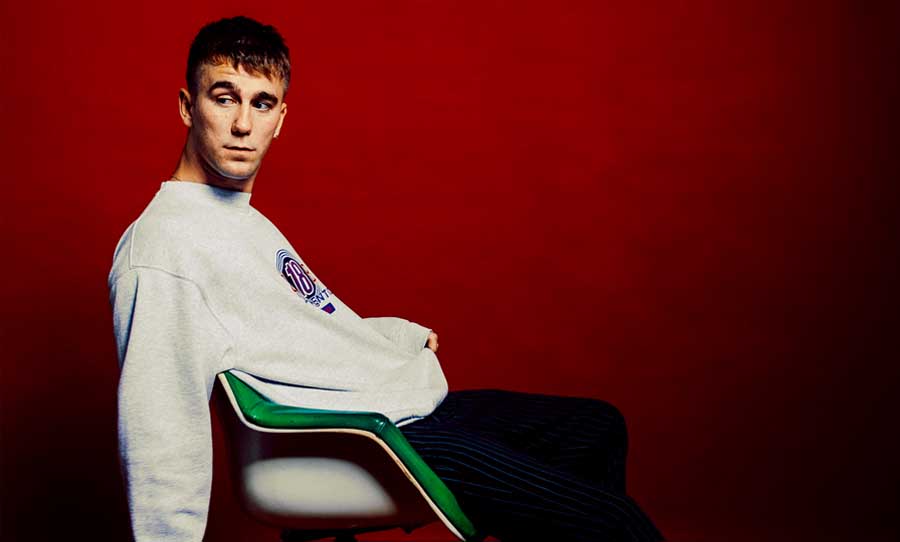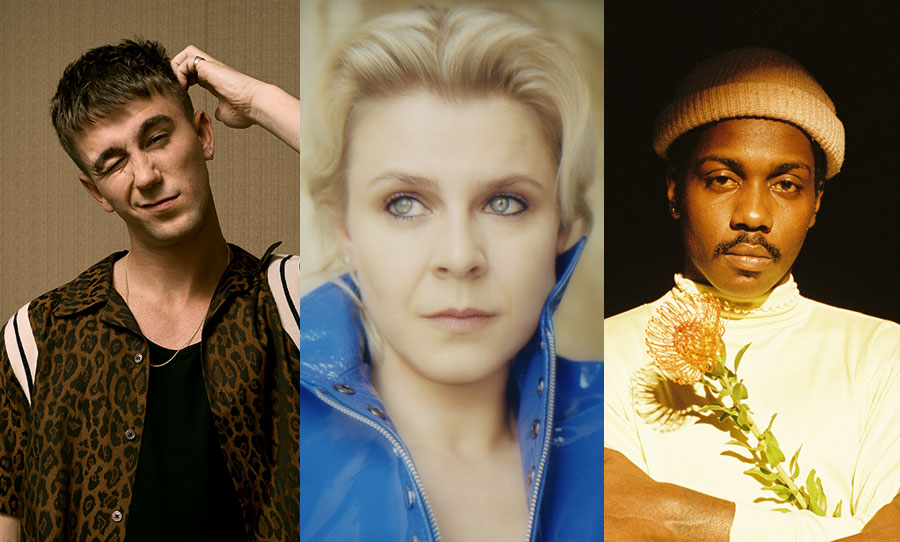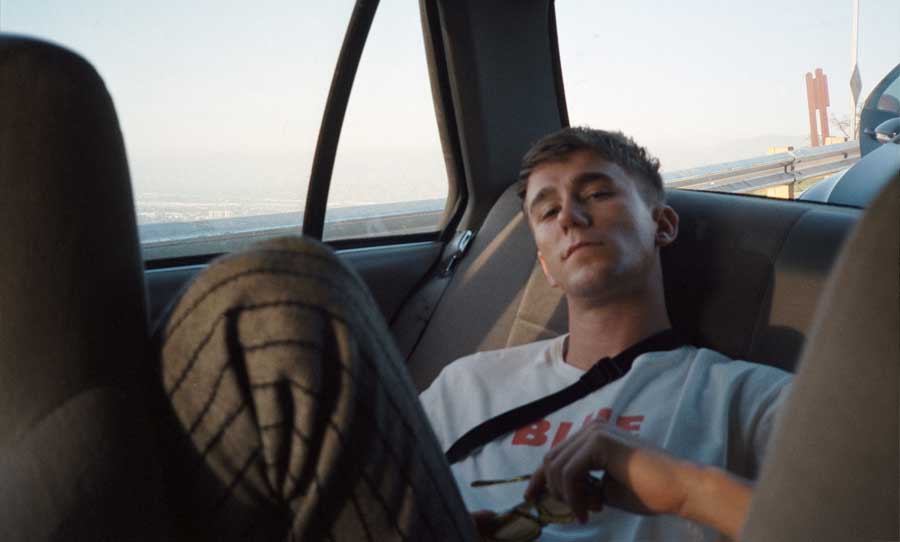We dive into the highly collaborative process of SG Lewis, a man with friends everywhere
It’s quite amazing how fast SG Lewis has transitioned from a quiet, upcoming talent into one of the world’s most in-demand producers. It wasn’t too long ago he was soaking up the club culture of Liverpool with wide eyes and a fast heartbeat, yet now he finds himself crossing paths with Pharrell and James Blake.
Though as he tells us, that heartbeat hasn’t slowed down. Fanboy-ism lies at the centre of what makes SG Lewis excited about his collaborators, a tangible relationship to the work of his peers. This isn’t the story of someone thinking they’re hot shit because of the company they keep – rather a man who still needs to pinch himself when he wakes up every morning.
As he finally releases the final chapter of his triptych album Dusk, Dark, Dawn, we sat down in Sydney to talk about his warpath to date, the difference between LA and Liverpool, and a few of those collaborations he holds so dearly.
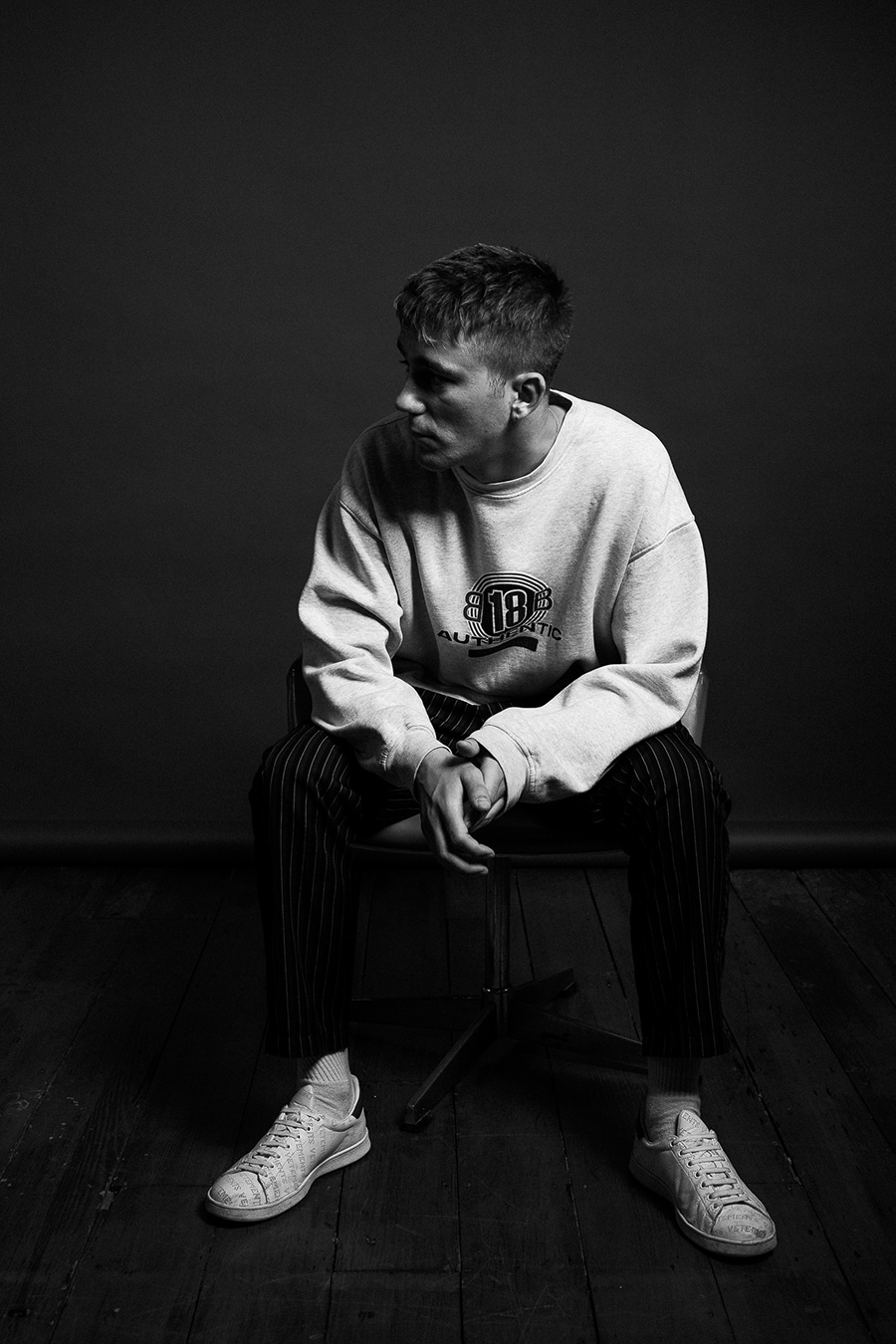
HAPPY: We’re going to talk about a few of your collaborators and I want to start with Ruel. He’s an Aussie, and he’s on your latest single. How far had Flames come along before he jumped on board?
SG LEWIS: Flames kind of underwent a real evolution, you know Ruel writes most of his music so for him to be open to working on a record that hadn’t involved him was really cool. When we first recorded Flames, or cut the vocal, his voice had just broken or something, so we ended up recording it a second time. We ended up changing a lot of things, really making the record his own, and that record wouldn’t have turned out how it did without his influence. It’s really cool to bring someone into that process at that point and take the record in a different direction, really. His vocal lifted the record so much.
HAPPY: You performed with him at the Opera House last night, right?
SG LEWIS: I mean, that was quite crazy to see. I was a fan of Ruel just from being put onto his music, I was aware of how well he was doing but to see it in person here… to sell out two Opera Houses at 16 years old, it’s literally unheard of. He’s the first person to do that, he’s the youngest person to sell it out and he did it twice over. I’ve never heard screams that loud in my entire life, my ears are still ringing. It was amazing to see. I’m super proud of him.
HAPPY: Moving on to Clairo, do you remember the first time you heard her music?
SG LEWIS: Yeah! It was probably Pretty Girl, that video that went pretty viral. It just had such a realness to it, this tongue-in-cheek feminist angle. I remember thinking it was pretty dope, I didn’t know who produced it or how it had been made so it was crazy to find out later on that the reason it sounded like it did was that she made it herself in her bedroom, just in GarageBand. So when I first heard it I was like, ‘is this intentionally lo-fi or has this been crafted by someone?’ but she had literally made Pretty Girl in her bedroom. Her music’s so sick.
HAPPY: When you hear someone’s work before you meet them or before you start working with them, is there an idea of ‘I could really add something to this’?
SG LEWIS: Absolutely, 99 percent of the time that is the case. I try to work with people because I’m a fan of their music, and I’ve always looked at people who I’ve personally connected with their music. There’s people that I’m a fan of that I might not necessarily have an idea for what I could add, but for people like Clairo or with a number of collaborators, you’re right. You hear their music and think it would be cool if I could put them out of this content, or try this angle. That’s the fun part of my job really.
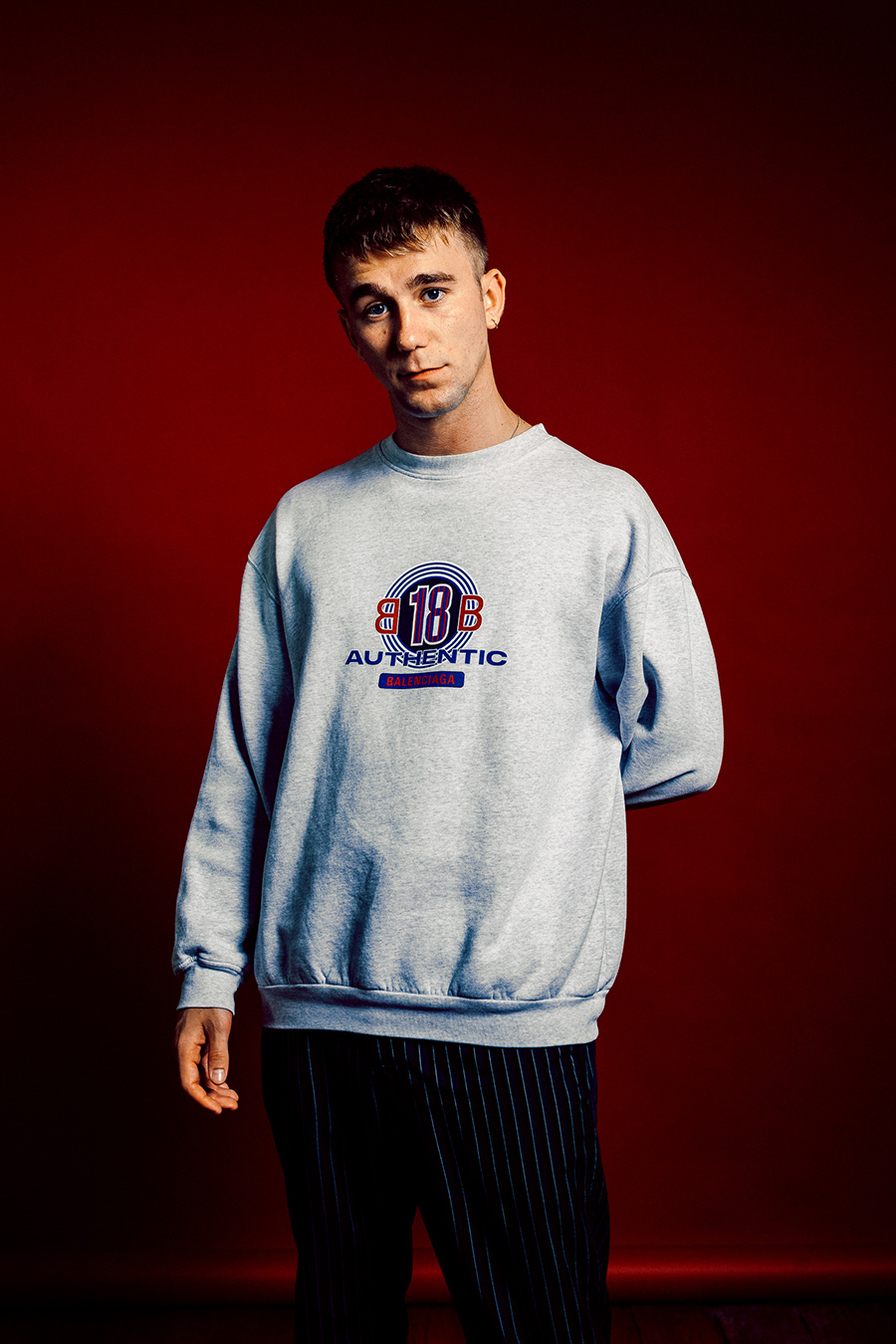
HAPPY: You probably have a long list of people you want to work with, then.
SG LEWIS: I mean, the list is always growing. I’m really fortunate to be in a position now where there’s much more freedom and open doors to get to work with people.
HAPPY: Totally Enormous Extinct Dinosaurs.
SG LEWIS: Uh-huh.
HAPPY: This one I love because you had another high-powered collaboration, but on Again his feature came down to what was essentially a vocal sample. It was so subtle.
SG LEWIS: That was a really crazy process because I’m a fan of most people’s music, but with TEED… I was obsessed with him. I studied his music and he’s a real production hero of mine, so when we did the session together I was very nervous because I was wanting to impress. The process of how it came about, although it ended up being that repeating vocal line, it was almost like having a teacher guide you through making a track. He stood there, he would say “pull up a sound that you’ve never used before”, ok, pull up some random flute sample, then he’d be like “try doing this” and he’d suggest off-centre things to try in a production. It was a case of me being on the buttons but him showing me new ways of doing things. I learned a lot in that process.
HAPPY: That’s quite close to the classic producer role. For a band, I mean.
SG LEWIS: Right, exactly! He was steering me through this process, I learned so much by working with him. He has a real mantra of following what feels good and trying not to force anything.
HAPPY: Awesome. Now Dave, he probably released my favourite hip hop album of the year with Psychodrama.
SG LEWIS: Sick.
HAPPY: Has it been rewarding seeing his career explode since you worked together?
SG LEWIS: Definitely, I’m so proud to have made 100M’s with him, it happened so quickly. I’d never made a beat like that before but I think I knew how it had to sound in my head. We met in the middle and made something that I’m super proud of. It’s amazing to see how his career has taken off but at the same time, it’s no surprise. He’s a genuine genius, he’s on some different wavelength to everybody else. He’s so young but a really deep thinker, and I think that comes across in his album and the ideas he talks about. I saw his show at Brixton Academy the other week, just in the crowd, he did two of them so 10,000 tickets. And he played 100M’s, so I was like ‘oh cool!’, then I got caught in the mosh pit.
HAPPY: That must have been a funny feeling, you in the mosh, probably without anyone knowing who you were.
SG LEWIS: Yeah! ‘Cause our crowds are really different. I’m happy you brought that up because a lot of people don’t know I did that. I have friends of mine who put that track on at parties where I’m like ‘I did that’, and they’re like ‘no you didn’t!’ Then they pull up the video and there’s me doing a little rap video cameo.
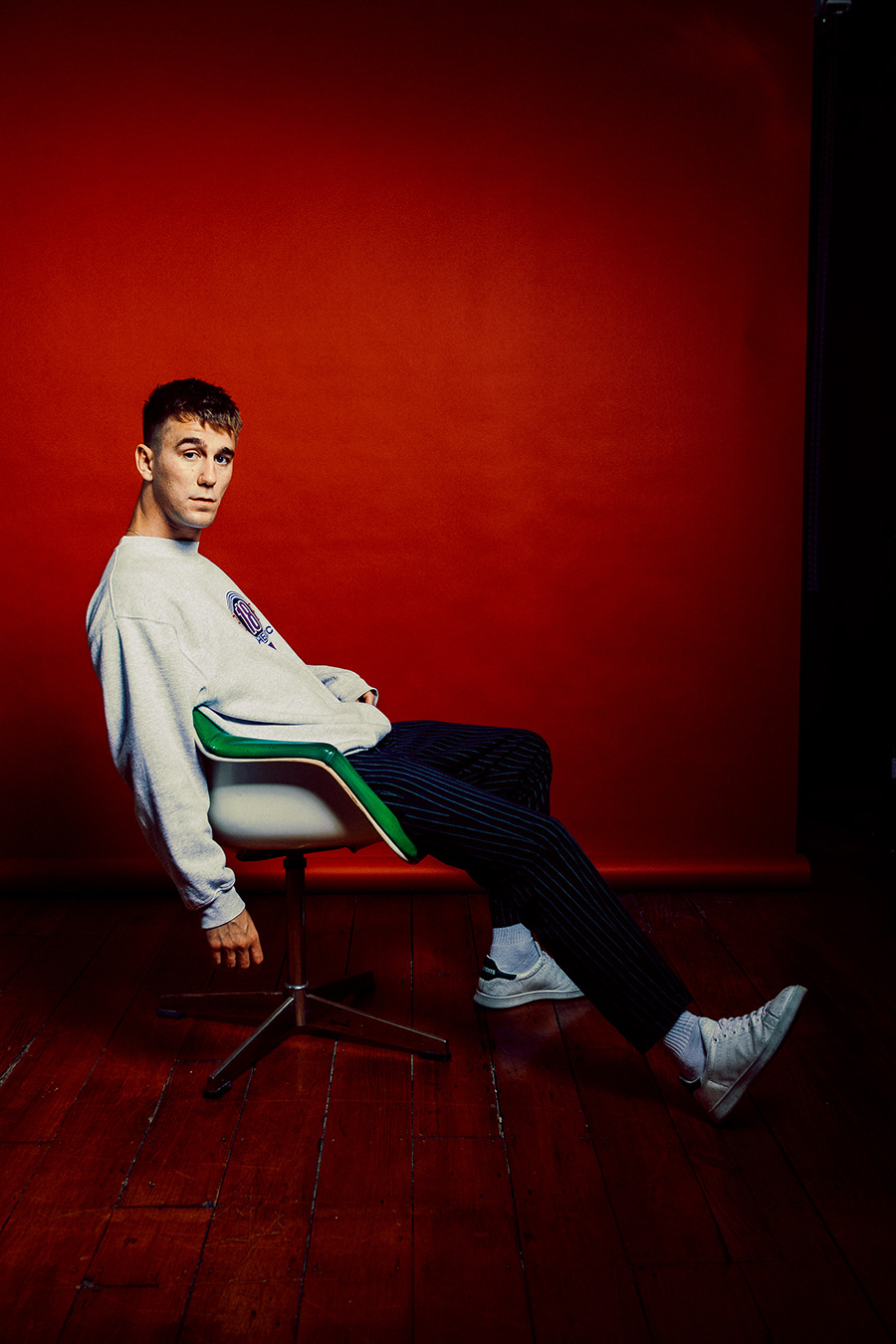
HAPPY: Last one I wanted to pick out was Gerd Janson. It was a remix, so did you two ever cross paths?
SG LEWIS: I mean, the only places we’ve crossed paths is me in the crowd at his DJ sets… having a great time, shall we say. That was one of those ones where they were like ‘who do you want to remix Hurting?’, and he was somebody I never expected to get a yes from, I’m just such a huge fan of his. Somehow he said yes, I hope one day I get to meet him, he’s one of my favourite DJs.
HAPPY: You DJ yourself?
SG LEWIS: Uh-huh.
HAPPY: Are there any artists who are that down-the-line DJ type that you looked up to when learning?
SG LEWIS: Yeah… I think because I make a lot of full structured songs and vocal focused music, people are surprised to find out the DJing background. My favourite DJ in the world though, that’s probably Motor City Drum Ensemble, he plays disco records that nobody else is playing and make them sound like the biggest records in the world. His mixing is flawless. I don’t think I’ve ever seen him play and not felt this incredible atmosphere, he’ll turn any room into the most amazing vibe.
HAPPY: Does the magic of meeting these people fade away? Like one day you’ll meet someone and just be like… cool.
SG LEWIS: Nah, I’m such a fanboy. It’s so important as an artist to stay a fan. That’s how you start in music, you know? So there’s definitely people I don’t think I could ever be normal or cool with, you know James Blake, I’d probably be awkward and just be in awe of him. I think it’s important to never lose that fanboy element, even with people you’re peers with.
HAPPY: Sometimes it must be a two-way street, too.
SG LEWIS: Yeah, it’s always a really lovely thing when other artists have the same thing back, when you meet people and they’ve connected with your music.
HAPPY: You told me before that you’re looking for a place back in England, but I did want to ask about LA. Does LA feel like that city where you can naturally fall into these relationships?
SG LEWIS: I think LA has just been the place where music has flowed for me recently, I think it’s become a hotpot of artists, of writers, of industry. I have weeks where I want to spend the rest of my life in LA, then I have weeks where I never want to come back, it’s a place of extreme highs and lows, but for me it’s a place where the only thing I do is make music. So it’s a place of focus, and you do meet these artists, it’s a place where you’re always one degree away from ending up in a crazy situation, so it’s a good place to be right now.
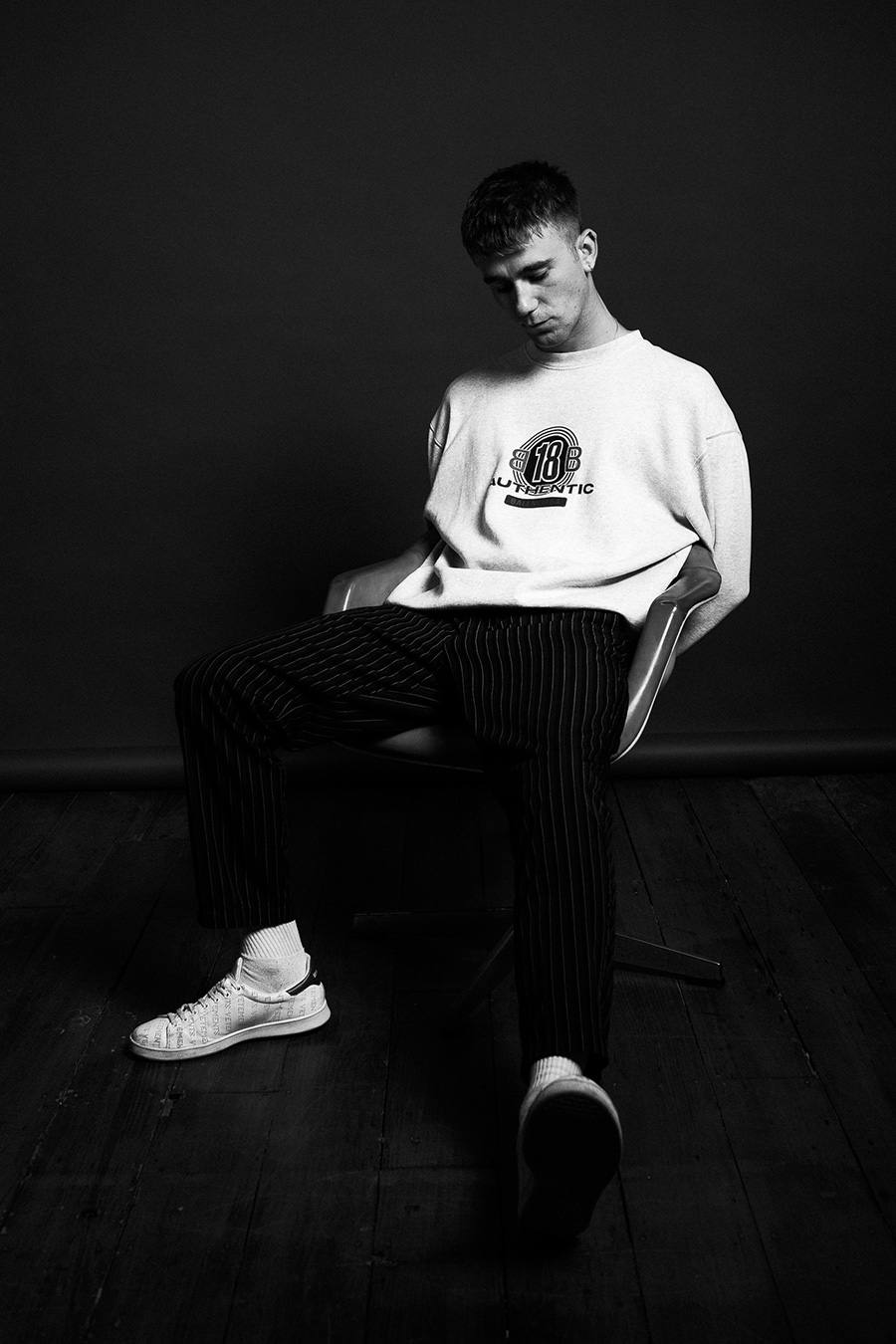
HAPPY: More so than Liverpool?
SG LEWIS: Liverpool was an amazing place to get a music education and to be introduced to club culture, because LA doesn’t have a club culture like that, you know? And London, I love London so much. For me personally, what’s happening in London hasn’t necessarily matched up with my own tastes currently, I’ve just found my music has resonated in different areas, but I’ve always loved London. London will always be my first home, I think.
HAPPY: To finish let’s talk about Dusk, Dark, Dawn, your record following the trajectory of a night out. Was there a particular night out that you felt you kept coming back to, or is this more of a collage?
SG LEWIS: I think it’s a collage of things, but it’s really mostly my experiences at music festivals from the age of 18 to… now even. There’s countless examples I drew on, but I guess I became fascinated with the music that surrounds those experiences, like people would always play music at the start of the night before you’d go to the club, or at the end of the night, or the music that gets played in the club or at the festival, and the memories that people attach to different pieces of music. For me there’s music that I hear, and it reminds me of a certain set at a festival or a certain time and place, and that’s really powerful. So I guess Dusk, Dark, Dawn is just me exploring my experience of that.
HAPPY: How closely do you relate how you produce those songs and the idea behind them – the different periods of a night – with how you play live? Is a club set all your Dark tracks?
SG LEWIS: The live show itself kind of moves through all three parts as a concept, so it literally starts at dusk, then dark, and it ends with dawn, and that’s reflected visually. But when I’m DJing it’s a very different thing, you know I’m very unlikely to play Throwaway in a DJ set because it just wouldn’t fit. Which sometimes people will get annoyed at, they want to hear a certain song because they’ve come see you DJ, but when I’m DJing it’s drawing on Dark or a track like Aura that I know is going to fit in that environment, that will keep the energy up.
HAPPY: I guess I like the idea of you, in a roundabout way, making music for any possible set that you play.
SG LEWIS: Yeah, right! I definitely want to progress further into that. We were looking at throwing a party in the summer in London and exploring the idea of it being a Dusk section of the night playing on this outdoor terrace, then going into the Dark section where it’s more intense, an indoor, techno sort of setup. Then the last bit, the Dawn set is the hardest. Like you just have a bunch of zombies passed out on bean bags or something, and you play nice ambient music. We’ll see!
HAPPY: You gotta get yourself to Burning Man. Where things are still going at 11am.
SG LEWIS: Yeah, definitely! That’s where you get the crowd who can really go all the way through. Maybe one day.
